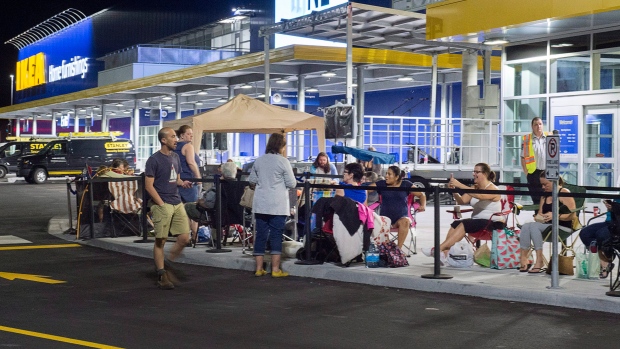Oct 10, 2017
IKEA embracing digital as online sales soar
Reuters

STOCKHOLM - Fast-growing online sales are helping to convince IKEA Group to step up its investment in digital technology and look beyond its traditional model of selling cheap furniture from huge out-of-town stores.
The Swedish group, which runs the bulk of IKEA stores worldwide, was initially slow to embrace the Internet, reportedly worried about the impact on its low prices.
But booming online sales and changing shopping habits have seen it look at new ways to reach customers and better compete with rivals from e-commerce sites Home24 and Amazon to store chains such as Britain's Argos and France's Conforama.
"We are truly in the midst of a shift in the world and at IKEA which means many parts of our legacy concept is fantastic and works going forward, but we also see incredible possibilities," CEO Jesper Brodin told Reuters on Tuesday.
That was after IKEA Group reported a 4 per cent rise in sales to 34.1 billion euros (US$40.1 billion) in its fiscal year through August, including a 28 per cent jump in online sales which accounted for about 5 per cent of the total.
On Monday, franchisor Inter IKEA said the business's new initiatives included city-centre showrooms that would display the full range of IKEA products. It also told Reuters in June it was considering selling through third parties, potentially including Amazon and Alibaba.
Brodin, IKEA Group CEO since last month, said another push over the coming three years would be to boost logistics and increase the number of distribution centres for home delivery of furniture and smaller parcels.
"We are looking at how we can speed up these investments," he said. "A substantial part of how we will serve our customers in future will be through digital interfaces, e-commerce and home delivery."
DARING TO DO DEALS
IKEA Group last month announced its first-ever acquisition outside the IKEA family of companies, agreeing to buy U.S. start-up TaskRabbit, potentially connecting buyers of IKEA's flat-pack furniture with tradesman to put it together.
Brodin said more could follow, in areas such as digital interfaces, services and customer relationship management.
"We are entering a landscape where we will probably dare make acquisitions that are also a bit more high-risk," he said.
Breaking down the annual sales figures, Brodin said new stores accounted for around half of the growth, existing stores less than a quarter and e-commerce business around a quarter.
That indicates a slowdown in comparable-store sales growth, but the company did not provide an exact figure or data from the year before. In 2015/16, IKEA Group reported a 7 per cent rise in sales, including a 5 per cent rise in comparable store sales, but that included two subsidiaries since sold to Inter IKEA.
IKEA stores worldwide are run by 11 franchisees, of which IKEA Group is the biggest with 355 of 403 stores.
IKEA Group and Inter IKEA are owned by separate foundations that both have links to, but are not controlled by, the family of IKEA founder Ingvar Kamprad.



